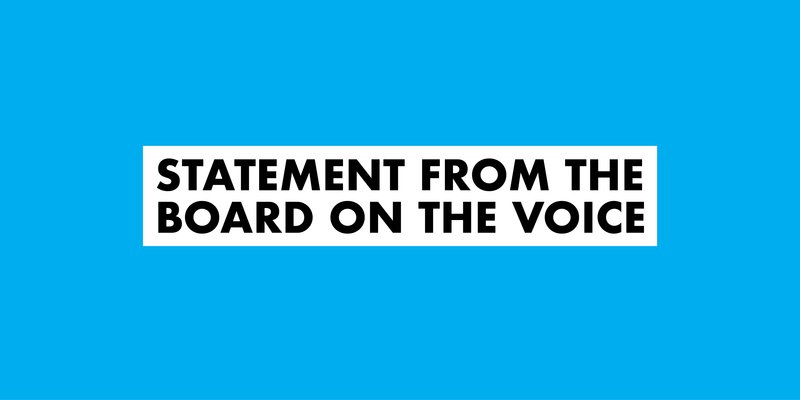The following is a non-exhaustive list of perspectives on the Voice to counter racist mainstream rhetoric with First Nations voices. NAVA encourages people to research, read, and discuss this issue beyond the following resources.
Why I stand for Yes, and why that’s hard to say out loud, Claire G. Coleman, Crikey, 5 September 2023
The rest of Uluru’s promise, Claire G. Coleman, The Saturday Paper, 2 September 2023
The Voice and the importance of truth-telling, Daniel James, 31 August 2023
The media will play a profound role in the Voice referendum, but are they up to it?, Rachel Perkins, Crickey, 25 August 2023
Lidia Thorpe calls for referendum to be abandoned during National Press Club address, Jess Whaler, National Indigenous Times (NIT), 17 August 2023
What is the Indigenous voice to parliament, how would it work, and what happens next?
Lorena Allam, The Guardian, 14 August 2023
Q+A at Garma 2023, ABC, 7 August 2023
Sydney Ideas – Voices on the Voice: Marcia Langton, University of Sydney, 3 August 2023
Yes or No – Australia is still guilty., Vanessa Turnbull-Roberts, Indigenous X, 20 July 2023
Voice to Parliament: Why mob are staying silent, Chelsea Watego, Indigenous X, 19 July 2023
Depending on your reasons, it’s okay to oppose the Voice, Michael Mansell, NITV, 21 April 2023
Issues Paper on a First Nations Voice Referendum, Australian National University (ANU), 25 August 2023
Framing the voice debate in terms of ‘special treatment’ is race-baiting – we must call it out, Tony McAvoy, The Guardian, 1 March 2023
What’s Indigenous sovereignty and can a Voice extinguish it?, Jack Latimore, Sydney Morning Herald, 9 February 2023
We have always had a voice, but we have never been listened to, Vanessa Turnbull-Roberts, The Guardian, 31 January 2023
Voting on 'The Voice': Will it fight racist violence?, Amy McQuire, Presence, 5 January 2023
An Indigenous Voice will mean politicians can't pick and choose the ones they want to hear, Thomas Mayor, SBS, 2 December 2022
Everything you need to know about the Uluru Statement from the Heart, Megan Davis and George Williams, June 2021
Finding the Heart of the Nation: The Journey of the Uluru Statement towards Voice, Treaty and Truth, Thomas Mayor, 1 October 2019
Detailed Outline of the Blak Sovereign Movement’s Position on the Referendum, Blak Sovereign Movement
Treaty before Voice







